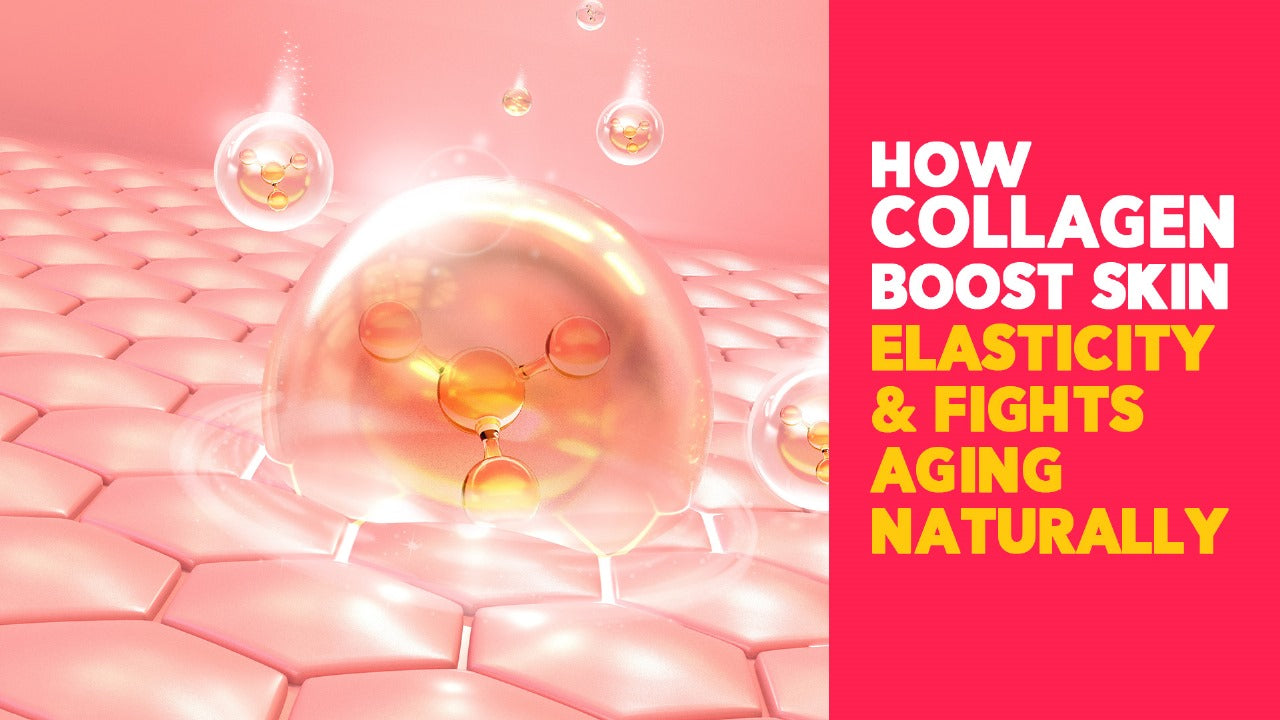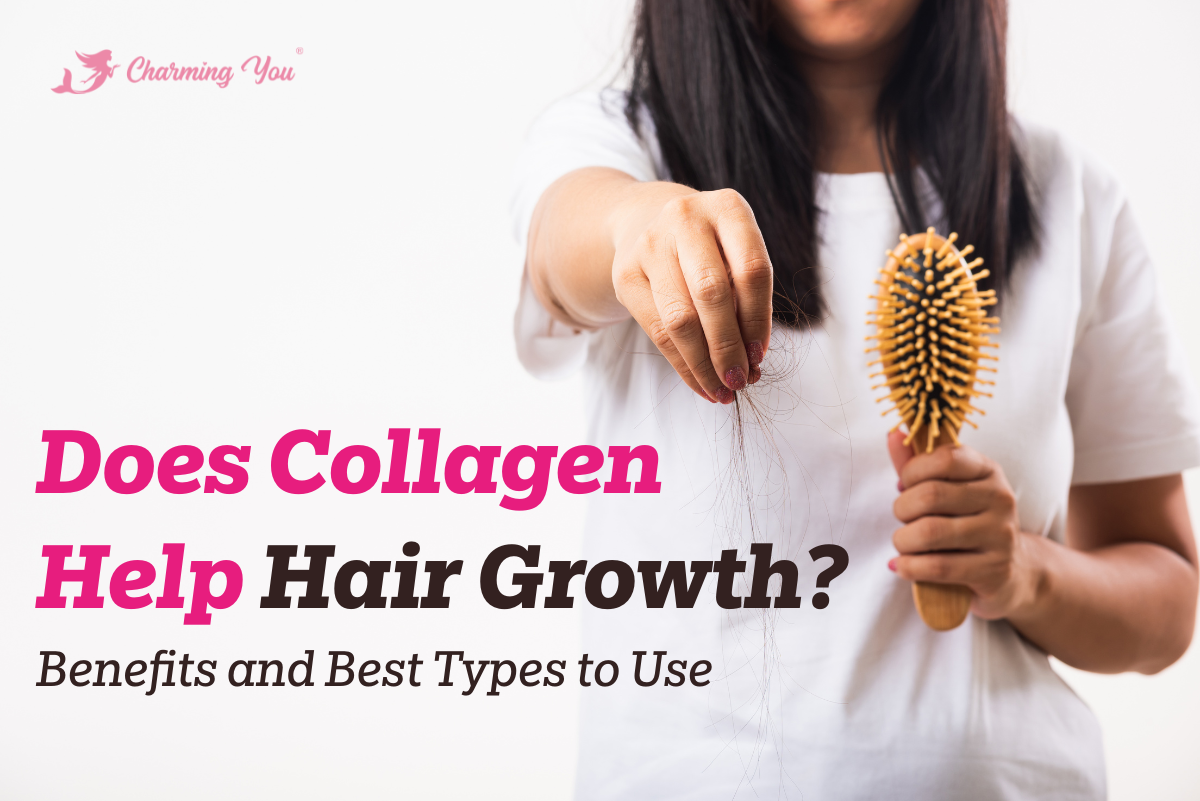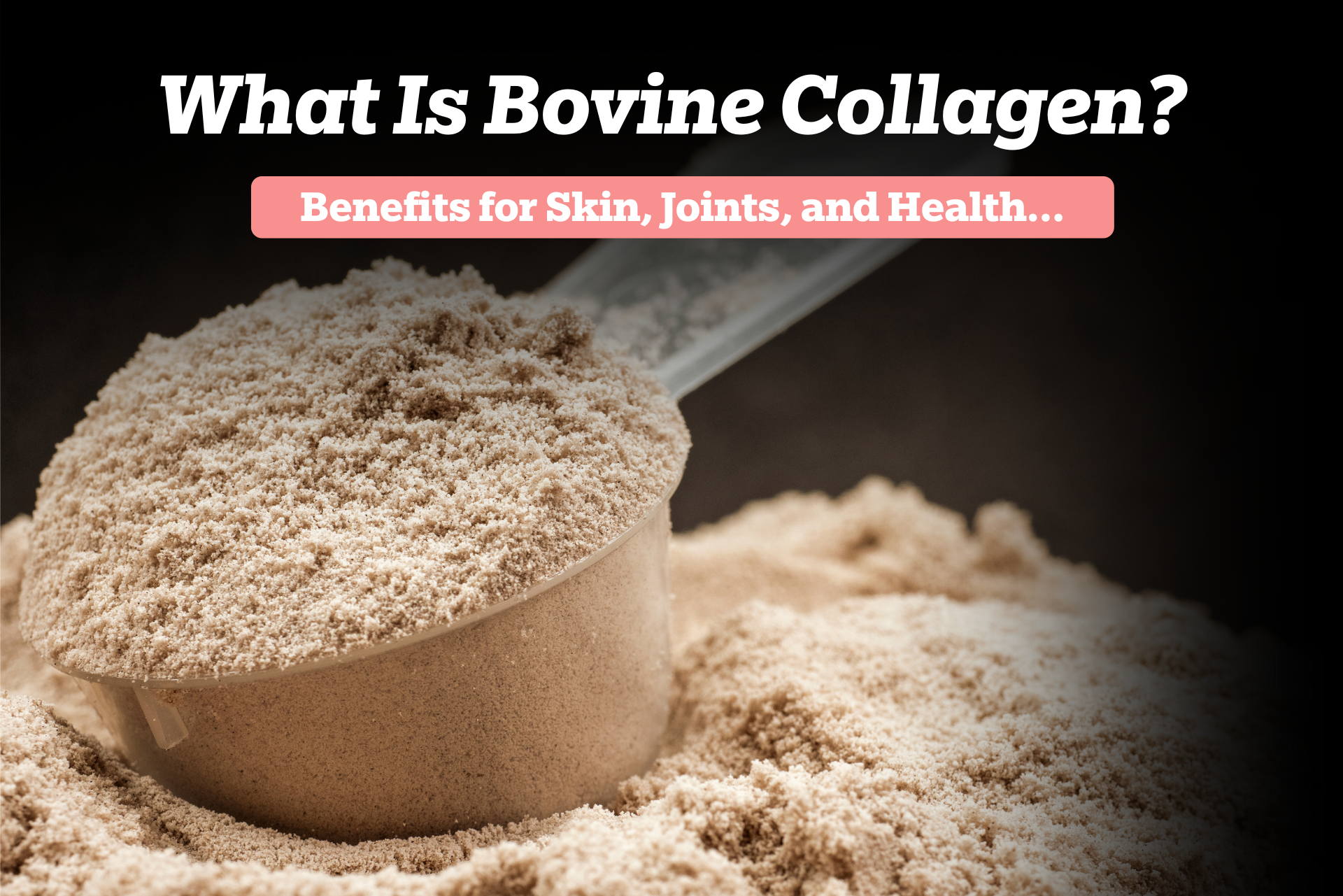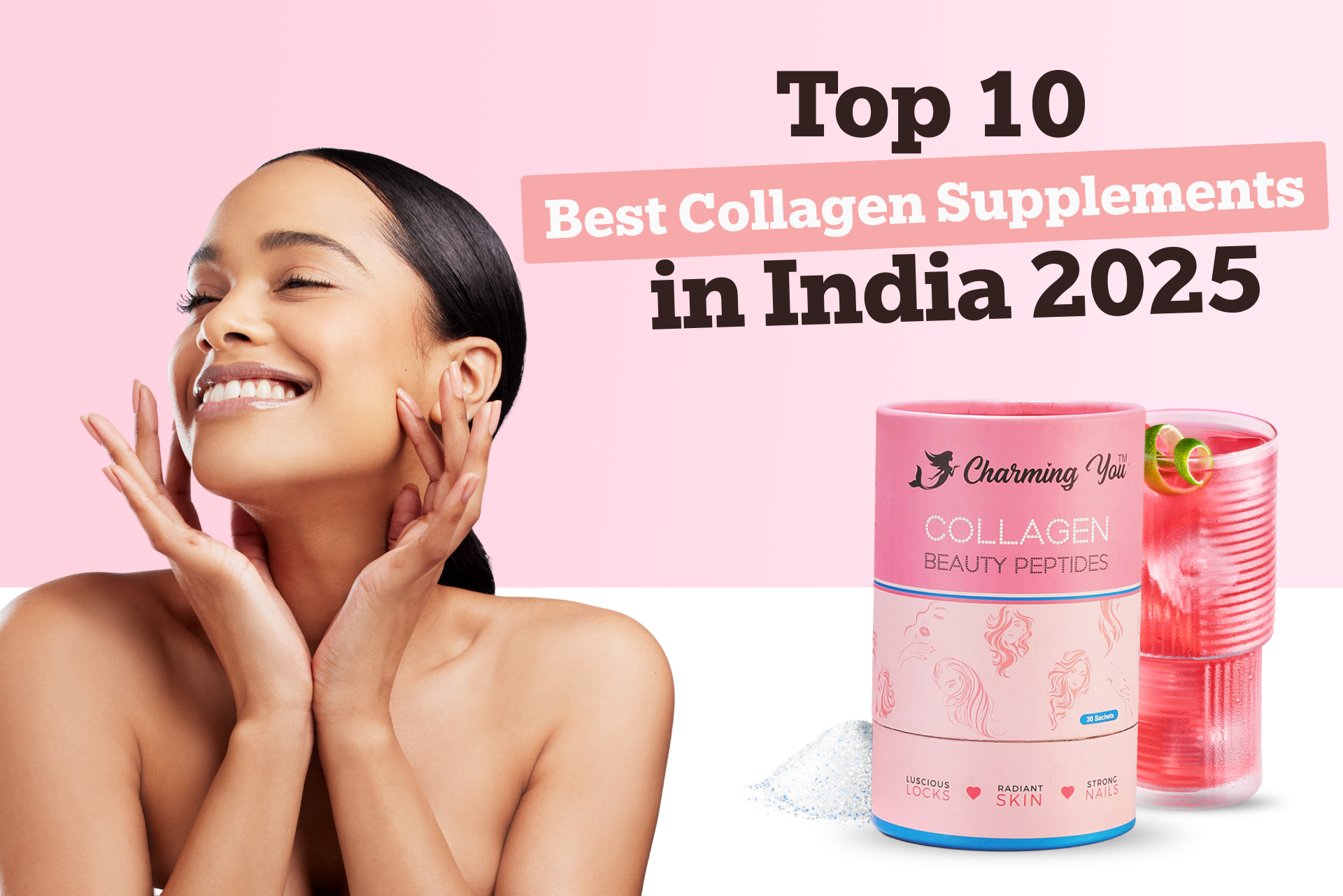
How Collagen Boost Skin Elasticity & Fights Aging Naturally
Collagen, aka the skin's best friend, plays an absolutely crucial role in maintaining skin elasticity, firmness, and deep hydration. It’s the magic protein that keeps your skin looking plump, bouncy, and glowing from within. But here’s the deal, as we age, our body naturally produces less of it. That's when those fine lines, wrinkles, and dry patches start creeping in. This biological slowdown is the reason millions of people worldwide are turning to collagen supplements and anti-aging skincare routines to restore what time has taken away. But wait, does collagen actually tighten skin and reduce wrinkles? And what type of collagen for skin elasticity? In this comprehensive guide, we’ll explore exactly how collagen helps firm and hydrate skin, reveal the best types of collagens for anti-aging effects, discuss dietary and lifestyle strategies, and share clinical insights on how to naturally boost your body's collagen production. Whether you’re noticing early signs of aging or just want to maintain your glow, this guide covers what you need — backed by research and expert insight.
Let’s dive into the fascinating science of collagen and discover how you can enhance your skin’s elasticity, firmness, and overall appearance giving your skin what it deserves.
What Is Collagen and Why Is It Crucial for Skin?
Collagen is the most abundant protein in our body, making up nearly 75% of your skin’s dry weight. It acts as the structural foundation that keeps your skin firm, smooth, and elastic. Think of collagen as the strong, flexible framework that holds your skin together. It gives your skin that smooth, firm, and bouncy feel we often associate with youth.
There are more than 28 types of collagen, but the most essential for skin health are:
-
Type I Collagen – The most abundant form, responsible for the skin’s strength, density, and overall structure. This type is known for forming tightly packed fibers that provide skin with its firmness and durability.
-
Type III Collagen – Often found alongside Type I, it helps with skin elasticity and support its firmness. It is especially prominent in younger skin and plays a critical role in skin repair and renewal.
These types of collagen are primarily located in the dermis layer of your skin, which lies beneath the outer epidermis. Together, they provide tensile strength and flexibility, allowing your skin to stretch and then return to its original shape without damage.
As we age, collagen production naturally slows down—often beginning in our mid-20s. By the time you reach 40, your body may produce around 25% less collagen, and by age 60, over 50% of collagen content may be lost. This decline affects the dermal structure, causing skin to become thinner, less elastic, and more prone to wrinkles and sagging. External factors such as UV radiation from sun exposure, environmental pollution, smoking, poor nutrition, and excess sugar consumption can further accelerate collagen breakdown. These factors cause oxidative stress and inflammation that damage collagen fibers, exacerbating the visible signs of aging. Collagen also plays a key role in maintaining skin hydration by interacting with other crucial skin components such as elastin and hyaluronic acid. When collagen levels decline, the skin loses its ability to retain moisture, leading to dryness and a dull complexion. That’s why collagen for skin elasticity is often considered the cornerstone of effective anti-aging skincare — it not only helps prevent premature aging but also supports skin repair, regeneration, and a healthier, more radiant complexion overall.
How Collagen Improves Skin Elasticity
Skin elasticity is the ability of your skin to stretch and then bounce back to its original shape without sagging or wrinkling. Collagen works synergistically with elastin (another structural protein) and hyaluronic acid to maintain this firmness and bounce.
Here’s how collagen supports skin elasticity:
-
Structural Support: Collagen forms a network of fibers that act as the skin’s scaffolding, providing strength and preventing sagging.
-
Hydration: Collagen helps retain water molecules within the skin, keeping it plump, smooth, and well-hydrated.
-
Cell Regeneration: Collagen peptides stimulate fibroblast cells, which are responsible for producing more collagen and elastin in the skin, aiding the natural repair process.
Taking collagen supplements replenishes the declining collagen levels in your body and stimulates natural collagen synthesis, making the skin appear firmer, smoother, and more youthful over time.
Does taking collagen actually help skin elasticity?
The answer is yes. Taking collagen supplements — especially hydrolyzed collagen peptides — can improve skin elasticity, firmness, and hydration.
As natural collagen production declines with age, collagen supplementation works by stimulating your body’s own collagen synthesis, effectively restoring the skin’s structural integrity from within. This internal approach complements topical skincare products and helps address aging at its source.
Several clinical studies support these benefits:
-
Consistent collagen supplementation over 8–12 weeks has been shown to result in smoother, firmer, and more elastic skin.
-
Improvements in hydration and wrinkle reduction have also been documented, enhancing the overall skin texture and appearance.
Factors such as your age, lifestyle, and the quality of the collagen for skin elasticity can influence how quickly you see results. For example, combining collagen supplements with vitamin C, a balanced diet rich in antioxidants, proper hydration, and daily sun protection can maximize the skin benefits and accelerate improvements.
Overall, collagen supplements provide a safe, natural, and effective way to support youthful, healthy skin and reduce visible signs of aging when taken regularly.
How Collagen Works
Hydrolyzed collagen peptides (also called collagen peptides) are collagen molecules broken down into smaller chains of amino acids. This process enhances absorption because smaller peptides can pass through the intestinal wall more efficiently.
Once ingested, these peptides travel through the bloodstream to the skin, where they stimulate your body’s fibroblast cells to increase production of collagen, elastin, and hyaluronic acid. This signaling helps rebuild the dermal matrix and improve skin structure.
Scientific Evidence:
-
A 2021 clinical trial found that participants taking hydrolyzed collagen saw a 15–20% improvement in skin elasticity within just 12 weeks.
-
A 2019 NIH-funded study confirmed increased skin hydration and significant reduction in wrinkle depth after 8 weeks of collagen peptide supplementation.
Timeframe for results:
-
Most users start noticing improved skin hydration and softness within 4–6 weeks.
-
Firmer, more elastic skin often becomes evident after 8–12 weeks.
-
Optimal results typically appear after 3 months of consistent use.
Best Collagen Types for Skin Elasticity & Wrinkles
Not all collagen types are equal when it comes to skin health and anti-aging benefits. Here’s a deeper dive into the most important collagen for skin elasticity:
Type I Collagen
Type I collagen is the most abundant and vital collagen type found in the human body and skin. It forms tightly packed fibers that provide tensile strength, firmness, and structural support — all essential for maintaining youthful, resilient skin.
Type I collagen is primarily responsible for the skin’s density and smooth surface, helping to reduce the appearance of fine lines and wrinkles. It is also found in bones, tendons, and ligaments, but its skin-related role is critical for preventing sagging and loss of firmness.
Type III Collagen
Type III collagen works alongside Type I to enhance skin elasticity and hydration. Often called the “supportive collagen,” it is abundant in younger skin but diminishes with age.
It plays an important role during skin growth, repair, and regeneration processes, contributing to smoother texture and improved skin tone. By supporting the skin’s structure, Type III collagen helps keep skin supple and resilient against environmental damage.
Other Collagen Types
-
Type II Collagen is mainly found in cartilage and joints but has some benefits for skin hydration.
-
Type V Collagen supports the formation of collagen fibrils and skin cell membranes and is involved in the maintenance of skin integrity.
For optimal skin elasticity and wrinkle reduction, focusing on Type I and Type III collagen is key.
Forms of Collagen
There are different sources and forms of collagen supplements, each with its own benefits:
Hydrolyzed Collagen (Collagen Peptides)
Hydrolyzed collagen is collagen that has been enzymatically broken down into small peptides for better absorption. Because of its high bioavailability, it quickly enters the bloodstream and reaches the skin, stimulating natural collagen production. Studies show hydrolyzed collagen improves skin hydration, firmness, and elasticity within 8 to 12 weeks of daily use. This form is among the most researched and effective for beauty and anti-aging benefits.
Marine Collagen
Marine collagen is derived from fish skin and scales and is naturally rich in Type I collagen — the key type that supports skin strength and firmness. It is known for its superior absorption rate compared to other collagen types. Marine collagen is particularly beneficial for improving skin texture, reducing wrinkles, and enhancing hydration. It is a popular choice for those looking for a clean, pescatarian-friendly collagen source.
Bovine Collagen
Bovine collagen comes from cows and contains both Type I and Type III collagen. This dual-type collagen is ideal for improving skin elasticity, structure, and smoothness. It is well-tolerated, cost-effective, and commonly used in many collagen supplements. When hydrolyzed into peptides, bovine collagen has increased absorption and proven anti-aging results.
For best outcomes, choose high-quality collagen from trusted brands offering hydrolyzed Type I & III peptides, enriched with vitamins like vitamin C.
Natural Ways to Boost Collagen and Fight Aging
In addition to supplements, you can naturally support collagen production and fight skin aging through diet, skincare, and lifestyle:
1. Diet
-
Collagen-Rich Foods: Bone broth, fish skin, chicken, beef provide collagen and key amino acids.
-
Amino Acids: Glycine, proline, hydroxyproline found in protein-rich foods support collagen synthesis.
-
Vitamin C: Found in citrus fruits, bell peppers, and strawberries — critical for collagen production.
-
Antioxidants: Blueberries, spinach, and kale help protect collagen from oxidative damage.
2. Skincare
-
Retinoids: Stimulate collagen renewal and improve skin texture.
-
Hyaluronic Acid: Enhances skin hydration and works synergistically with collagen.
-
Vitamin C Serums: Protect skin and boost collagen synthesis.
-
Sunscreen: Essential to prevent UV-induced collagen breakdown and premature aging.
3. Lifestyle
-
Stay well-hydrated.
-
Get 7-9 hours of quality sleep.
-
Avoid smoking and limit alcohol intake.
-
Manage stress through mindfulness, meditation, or exercise.
Consistent care combining these strategies with collagen supplements provides long-lasting anti-aging benefits.
How Long Does It Take to See Results?
-
Week 4: Improved skin hydration and a natural glow.
-
Week 6-8: Noticeably firmer skin and reduction in fine lines.
-
Week 12: Visible skin tightening and enhanced elasticity.
Keep in mind, individual results may vary based on age, lifestyle, diet, and the quality of collagen supplement used.
Why Choose Charming You Collagen?
If you're looking to give your skin a little extra love from within, Charming You Collagen is a great place to start. This premium supplement is thoughtfully formulated with hydrolyzed Type I & III collagen peptides, the same types your skin naturally needs to stay firm, smooth, and glowing. What makes it even better? It’s not just about collagen. The formula also includes Vitamin C, biotin, glutathione, and hyaluronic acid, a powerhouse blend of ingredients known to support collagen production, lock in hydration, and promote that healthy, radiant glow. And the best part? No mixing, no mess. Charming You Collagen comes in easy-to-carry sachets that fit right into your routine, whether you're at home or on the go. Plus, it’s gluten-free, sugar-free, and combines both marine and bovine collagen for skin elasticity sources to maximize absorption and visible results.
Key Benefits:
-
Improves skin elasticity, firmness, and hydration
-
Supports healthy hair, strong nails, and overall skin texture
-
Contains a powerful blend of collagen peptides and skin-supporting vitamins
-
Convenient sachets with clean, high-quality ingredients and no fillers
Conclusion
Collagen isn’t just a trend—it’s a vital protein that keeps your skin looking smooth, firm, and youthful. As we age, our natural collagen production slows down, which leads to visible signs like wrinkles, fine lines, dryness, and sagging. While this is a normal part of the aging process, the good news is that you can take action to support your skin from the inside out. By adding a high-quality collagen for skin elasticity like Charming You Collagen to your daily routine, you’re helping your body restore what it naturally loses with time. Hydrolyzed collagen peptides are easily absorbed and work to improve skin elasticity, hydration, and overall texture. When paired with a balanced diet rich in antioxidants, vitamins (especially Vitamin C), regular hydration, sun protection, and a good skincare routine, the benefits become even more noticeable.
Collagen can be beneficial at any age. Whether you’re starting to see early signs of aging in your 30s or looking to restore firmness and glow in your 50s, it’s never too late to begin. Consistency is key—and over time, you’ll likely notice smoother, healthier, more radiant skin.
FAQs
Q1: Does collagen help sagging skin?
Yes, collagen—especially hydrolyzed peptides—helps reduce sagging by improving skin elasticity and firmness. It supports the skin's structure from within and promotes new collagen production, making skin appear tighter, smoother, and more youthful with regular use.
Q2: Which collagen is best for wrinkles?
Type I and III collagen are best for reducing wrinkles. Type I improves skin strength and structure, while Type III boosts elasticity and hydration. Marine and bovine sources rich in these types are ideal for smoother, firmer, and younger-looking skin.
Q3: Can collagen reverse aging?
Collagen can't reverse aging completely, but it helps slow visible signs like wrinkles, sagging, and dryness. By restoring collagen levels, it supports skin regeneration and firmness, helping you maintain a more youthful, radiant appearance over time.
Q4: Is collagen better than retinol?
Collagen and retinol work differently. Collagen supplements work from the inside by rebuilding skin structure, while retinol works on the surface to boost cell turnover. For best results, they’re often used together to target aging from both inside and out.
Q5: When should women start collagen supplements?
Women should start taking collagen between ages 25 to 30, when natural production begins to decline. Early supplementation helps prevent premature aging, supports skin elasticity, and maintains a youthful look before deep wrinkles or sagging appear.






